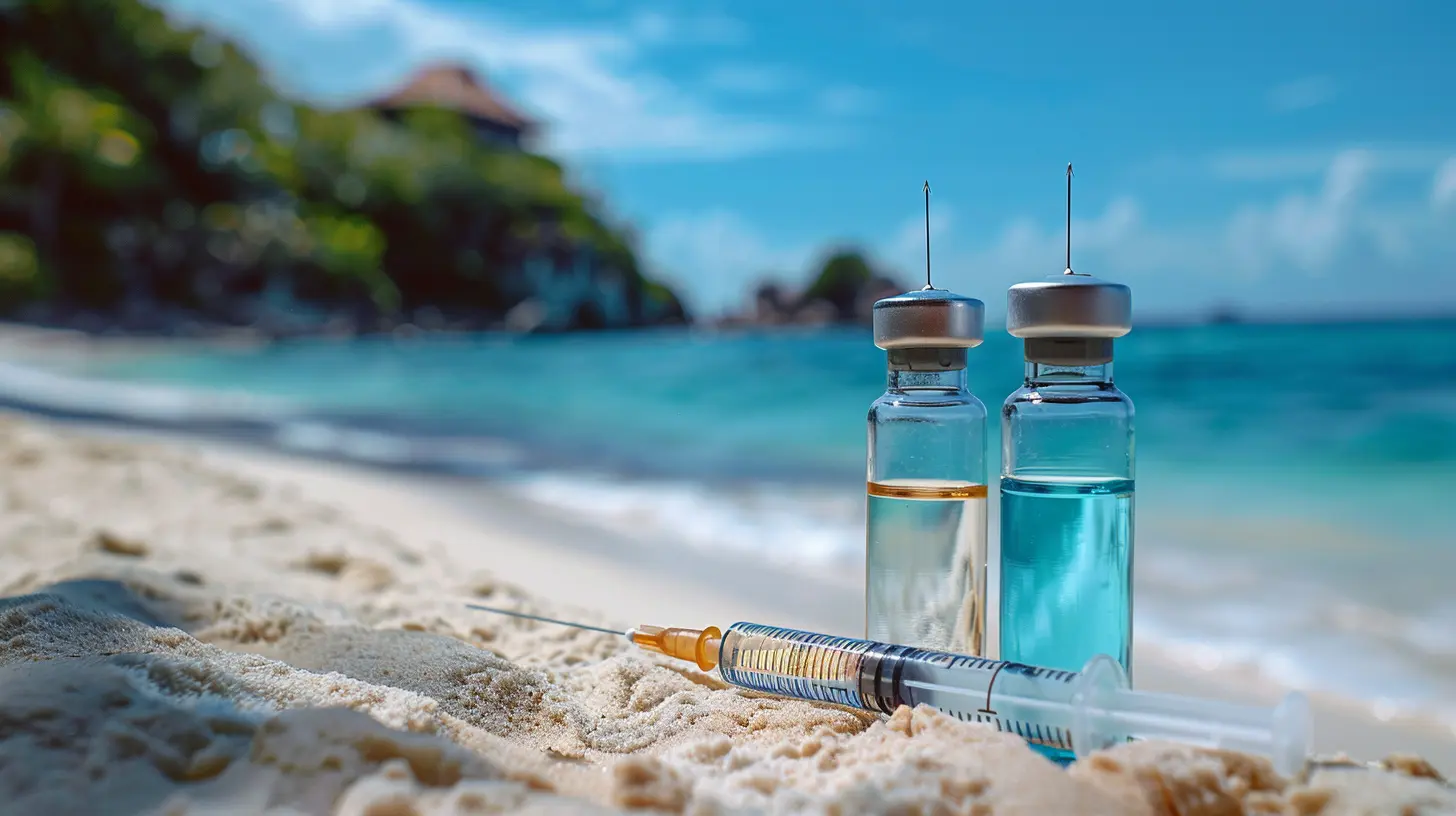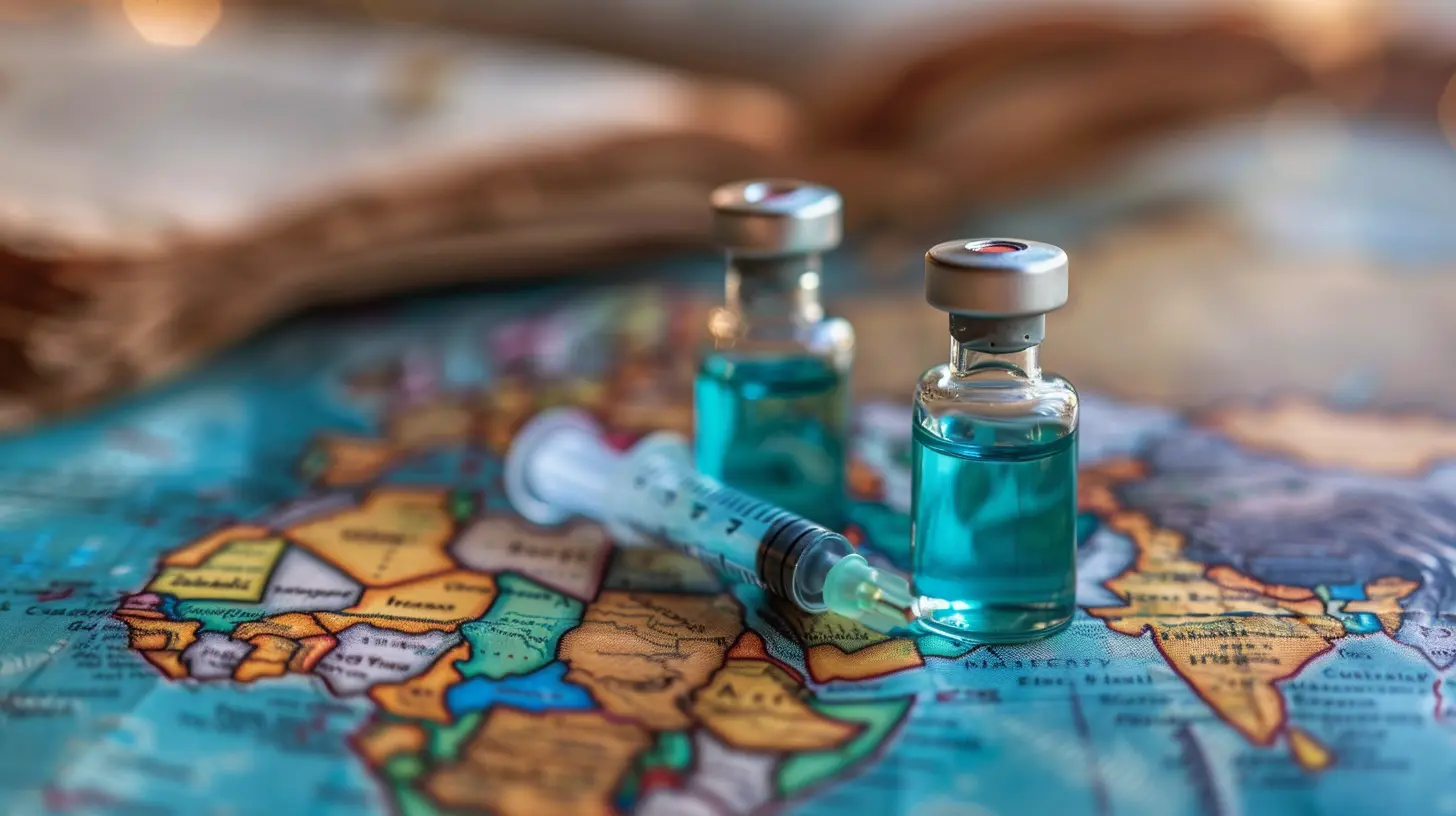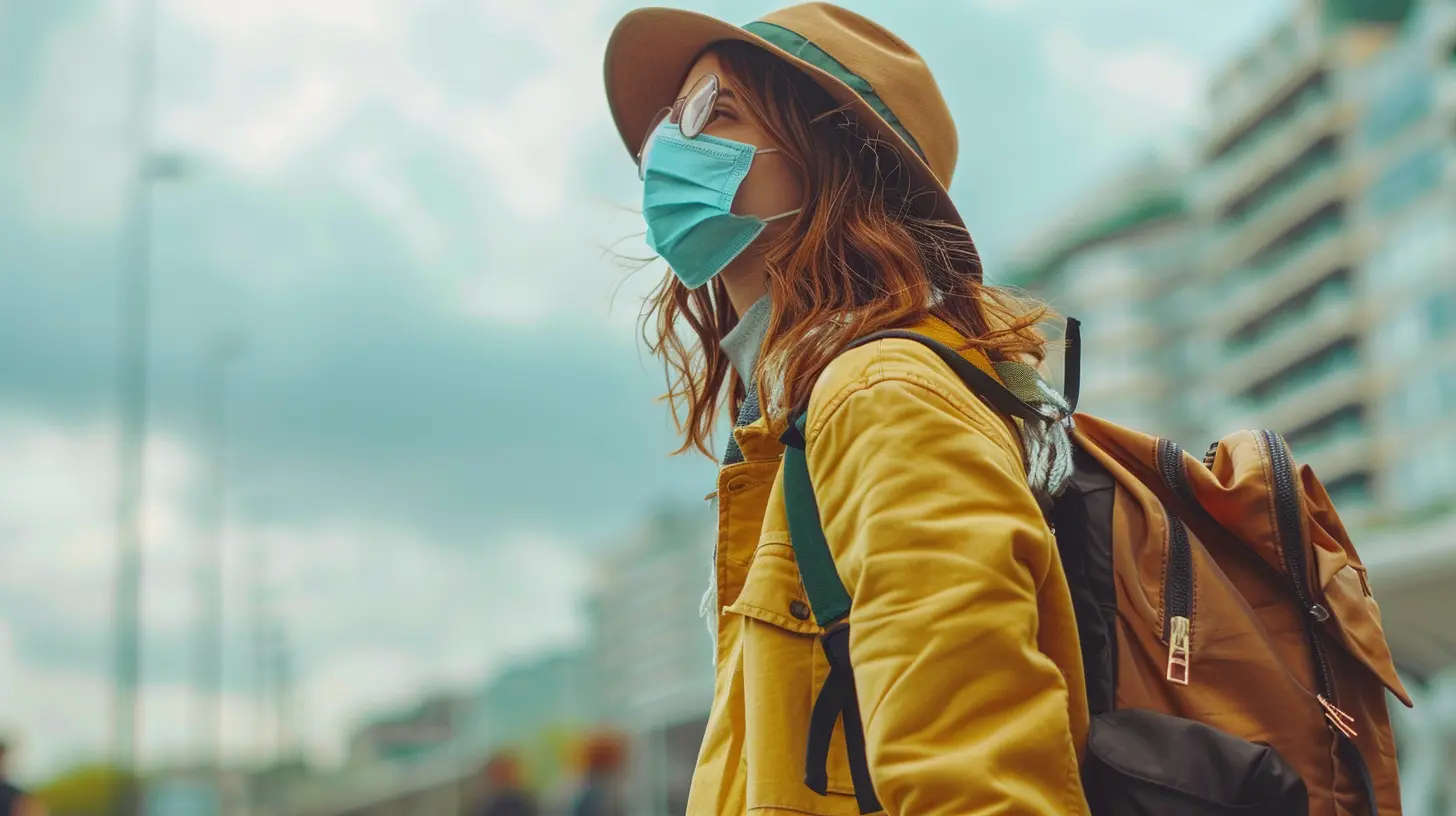Essential Travel Vaccines You Shouldn't Skip
9 January 2025
Hey there, globetrotter! So, you've booked that dream trip, packed your suitcase, and perhaps even brushed up on the local language. But before you zip up your bag and head to the airport, there’s one vital thing you must not forget—your travel vaccines. Yep, those little shots have the power to either make or break your trip. Trust me, you don’t want a vacation souvenir like typhoid fever or yellow fever! Let's dive into the world of essential travel vaccines and why you shouldn't skip them. 
Why Are Travel Vaccines a Big Deal?
Picture this: You're exploring lush jungles, savoring street food, or mingling at bustling markets halfway across the world. Paradise, right? But lurking invisibly around are bacteria and viruses your body might not be prepared to handle.Diseases that are rare or non-existent where you live may be more common elsewhere. Plus, travel—especially to exotic or rural destinations—exposes you to unfamiliar pathogens. Vaccines are your armor, keeping you safe from preventable illnesses that could otherwise ruin your trip (or worse). 
How Do You Know Which Vaccines You Need?
It’s not one-size-fits-all when it comes to travel vaccines. The ones you’ll need depend on factors like:- Your Destination: Heading to Southeast Asia? Africa? South America? Each region has its own unique health risks.
- Time of Year: Some diseases, like Japanese encephalitis, are seasonal.
- Activities: Planning to hike deep in the jungle or camp near wildlife? Your risk level increases.
- Your Medical History: Some vaccines might not be recommended if you’re pregnant or have certain allergies.
Pro tip: Check out the CDC (Centers for Disease Control and Prevention) or WHO (World Health Organization) websites for updated travel health recommendations. And, of course, consult a travel clinic or your doctor six to eight weeks before departure. 
The Must-Have Travel Vaccines
Here’s the lowdown on the most essential travel vaccines. Don’t worry; I’ll break it down in plain English.1. Hepatitis A
- Why it’s important: Love street food? Me too! But Hepatitis A, a serious liver infection, spreads through contaminated food and water.- Where it’s common: Pretty much everywhere except North America, Europe, and parts of Australia.
- When to get it: One dose offers partial protection, but a second shot (6-12 months later) keeps you covered for life.
2. Typhoid
- Why it’s important: This nasty bacterial infection is another risk for foodies. If you’re trying exotic dishes, this vaccine is a no-brainer.- Where it’s common: South Asia, Africa, South America, and the Caribbean.
- Options: You can either get a shot or take an oral vaccine (pills).
3. Yellow Fever
- Why it’s important: Transmitted by mosquitoes, yellow fever can cause fever, jaundice, and, in severe cases, death.- Where it’s common: Tropical regions of Africa and South America.
- Extra tip: Some countries won’t let you in without proof of vaccination (they’ll stamp your International Certificate of Vaccination—like a passport for your health!).
4. Rabies
- Why it’s important: Love animals? Be careful! Rabies spreads through bites or scratches from infected animals, and it’s almost always fatal once symptoms appear.- Where it’s common: Anywhere with stray dogs, bats, or monkeys—especially remote areas of Africa and Asia.
- When to get it: If you're visiting a high-risk area or traveling far away from medical facilities.
5. Japanese Encephalitis
- Why it’s important: Another mosquito-borne disease, this one can cause brain inflammation—yep, scary stuff.- Where it’s common: Rural areas of Asia, especially during rainy seasons.
- Who it’s for: Recommended if you’re spending a lot of time outdoors (hiking, farming, etc.).

Other Travel Vaccines You Should Consider
6. Cholera
- Cholera is a gut-wrenching (literally) disease spread through contaminated water. It’s more common in areas with poor sanitation. Some travelers can take an oral vaccine called Vaxchora.7. Meningococcal Meningitis
- This bacterial infection is spread through coughing, sneezing, or close contact. It’s particularly a concern in regions like the African “meningitis belt.”8. Polio Booster
- Even if you were vaccinated as a child, a booster is recommended for certain destinations. Why? Polio still exists in countries like Afghanistan and Pakistan.9. Tick-Borne Encephalitis
- Planning to camp or hike in forests of Europe or Asia? This vaccine is worth considering since ticks can carry encephalitis virus.10. Influenza
- A flu shot might not sound very ‘exotic,’ but who wants to catch the flu on a long flight or abroad?Common Misconceptions About Travel Vaccines
“I’m healthy, I don’t need vaccines.”
Even the healthiest among us can fall victim to travel diseases. Your immune system isn’t used to unfamiliar bugs.“Vaccines are too expensive.”
Sure, they might pinch your wallet now, but isn’t prevention cheaper (and easier!) than dealing with hospital bills abroad?“I’ve been to this place before; I’ll be fine.”
Diseases evolve, and so do their prevalence rates. Better safe than sorry.Tips for a Smooth Vaccination Experience
- Plan Ahead: Some vaccines need multiple doses or take weeks to kick in. Don’t leave it until the last minute!- Keep Records: Carry a copy of your vaccination history—some countries require proof at customs.
- Stay Hydrated: You might feel a little off after a jab. Keep drinking water and take it easy.
- Don’t Freak Out: Scared of needles? Deep breaths, my friend! The discomfort is over in seconds, but the protection lasts much longer.
Beyond Vaccines: Other Health Precautions
Vaccines are your first line of defense, but you’ll want to stack the odds in your favor with a few more tricks:1. Mosquito Repellent: Mosquitoes are the culprits for diseases like malaria, dengue, and Zika.
2. Safe Eating and Drinking: Follow the golden rule—“Boil it, cook it, peel it, or forget it.”
3. Travel Insurance: It’s your safety net in case things go sideways.
Final Thoughts
Traveling is all about adventure, but nothing ruins a good story faster than being bedridden with an illness you could’ve easily avoided. Vaccines are your trusty sidekick—small but mighty. So, before you take off, get those shots and roam the world with peace of mind. After all, you deserve a trip filled with memories—not maladies.all images in this post were generated using AI tools
Category:
Travel HealthAuthor:

Shane Monroe
Discussion
rate this article
12 comments
Bryson Jennings
Great overview on essential travel vaccines! It’s crucial to stay informed and protect both your health and that of local communities. The list is a helpful reminder that some vaccinations aren't just for personal safety but also for responsible travel. Thank you for sharing this valuable information!
February 2, 2025 at 3:41 AM

Shane Monroe
Thank you for your thoughtful comment! I'm glad you found the information valuable for promoting safe and responsible travel. Safe travels!
Jasmine Hurst
Health first ensures unforgettable travel experiences ahead.
January 30, 2025 at 5:01 AM

Shane Monroe
Absolutely! Prioritizing health through essential vaccines paves the way for safe and memorable travels.
Daria Frank
Prioritizing essential travel vaccines is a key step in protecting your health and ensuring a safe journey. Stay informed and prepared; your adventure begins with a healthy foundation.
January 25, 2025 at 5:28 AM

Shane Monroe
Absolutely! Prioritizing essential travel vaccines is crucial for a safe journey. Staying informed and prepared truly sets the foundation for a healthy adventure. Thank you for highlighting this important aspect!
Katalina Good
Great article! Essential information for travelers—vaccines are crucial for a safe and healthy journey. Thank you for sharing this valuable guidance!
January 23, 2025 at 3:37 AM

Shane Monroe
Thank you for your kind words! I'm glad you found the information helpful for safe travels!
Viviana Johnson
Thank you for shedding light on such an important topic. Travel can be a wonderful adventure, but prioritizing health is crucial. Your insights on essential vaccines remind us to care for ourselves and our fellow travelers. Safe journeys, everyone!
January 16, 2025 at 5:13 AM

Shane Monroe
Thank you for your thoughtful comment! I'm glad you found the insights helpful. Safe travels to all!
Fennec Strickland
Ready to pack your bags? Don’t forget your vaccines! They’re like the ultimate travel buddy—keeping you safe and happy on your adventures. Get poked so you can explore without a worry! 🌍✈️💉
January 15, 2025 at 4:13 PM

Shane Monroe
Absolutely! Vaccines are essential for safe travels—pack them along with your bags! 🌍✈️
Veda Thomas
Because who doesn’t love a little needle adventure before their beach vacation? Nothing says ‘relaxation’ like a side of vaccines!
January 15, 2025 at 3:35 AM

Shane Monroe
Absolutely! Staying healthy is key to enjoying your vacation to the fullest!
Parker Young
Who needs vaccines anyway? Just think of them as trendy accessories for your travel selfies. Safety is so last season!
January 12, 2025 at 5:45 PM

Shane Monroe
Vaccines are essential for protecting your health and preventing disease; they’re not just accessories. Prioritize safety for a healthier travel experience.
Kian McConkey
Great info! Stay healthy on adventures!
January 11, 2025 at 3:52 AM

Shane Monroe
Thank you! Staying healthy is key to enjoying your adventures! Safe travels!
Liora McCaffrey
This article on essential travel vaccines is fascinating! I never realized how vital vaccinations are for travel safety. I'm curious about how different countries' vaccine requirements vary. Do any specific destinations have unique vaccine recommendations that travelers often overlook? I’d love to know more about the potential health risks!
January 10, 2025 at 5:00 PM

Shane Monroe
Thank you for your interest! Yes, vaccine requirements can vary widely by destination. For example, yellow fever vaccination is often required for travel to parts of Africa and South America, while some countries may recommend vaccines like typhoid or hepatitis A. Always check with local health authorities for the latest recommendations before traveling!
Freya Horne
Ensuring you’re vaccinated before travel not only protects your health but also helps safeguard communities. Each shot is a step toward safer adventures.
January 10, 2025 at 4:36 AM

Shane Monroe
Thank you for emphasizing the importance of vaccination! Protecting our health and communities is crucial for safe travel.
Lanae Wolfe
Stay healthy and explore the world with confidence! Essential travel vaccines are your first step towards unforgettable adventures. Prioritize your well-being, and embrace the joy of discovering new places and cultures without worries!
January 9, 2025 at 5:41 PM

Shane Monroe
Thank you for the encouragement! Prioritizing health through essential travel vaccines truly enhances the travel experience. Safe travels!
MORE POSTS

Mastering Drone Photography for Spectacular Travel Footage

Experience the Best of Croatia’s Coastline at the Perfect Time

Spa and Wellness Destinations for the Ultimate Relaxation

Dealing with Anxiety During Travel: A Holistic Approach

Dog-Friendly City Break Destinations for Pet-Lovers

Weekend R&R: Slow Travel Ideas for Relaxation Seekers

The Ultimate Packing Guide for Minimalist Travelers
Cross Country USA: Iconic Routes for the Adventurous Spirit